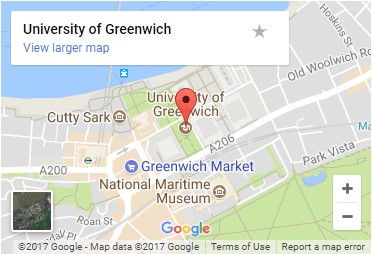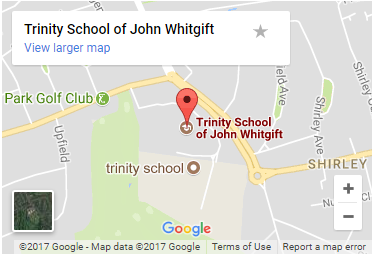
Summer Booster for a Confident start in the Autumn
See the bottom of this page to find out how we can help. To ask questions or to secure a place for your child on our Booster course, complete the form on the right ->
With the new norm, the standard of education being provided both offline and online by various schools since the start of the pandemic varies from school to school. Most schools are doing their best given this rather challenging environment, but the outcome in terms of the quality of education being provided by some schools is substandard, and will have a negative impact on their students in the near future.
One of the horror stories we’ve heard involves some schools claiming that setting work for their students without teaching them the content constitutes teaching. We profoundly disagree, as other schools are managing via a video link and then setting work in addition.
Since just after the lockdown started, we have been providing online lessons very successfully and we are determined to not only maintain the high standard, but to continue to improve. The way we do the teaching online involves a mixture of small group teaching and also one-to-one. See more details below.
In order to ensure that the education of young people in core academic subjects does not suffer, given the disruption that schools closure has caused. We are providing regular Saturday classes for GCSE and A-level students on the dates indicated in the table on this page.
Booking / Enquiry Form
Mr. J Smith MA Oxon – Mathematics
In this short video, Mr. J Smith compares the differences between the two-day or three-day intensive revision courses and the regular, weekly Saturday Classes for GCSE and A-level students. In his explanation, you can see the benefits for each of the two courses, and how they can help in making a difference to students’ understanding and examination performance.
The nature of the lessons that we are providing includes the following benefits
- Actual teaching of students, via Zoom or Microsoft Teams (lessons are recorded – for safeguarding and for students to use in following up)
- Compulsory follow-up assignments – with the student submitting work for marking
- One-to-one feedback by the teacher via video link and also marking work, with meaningful feedback
Below are the specifics of what we are offering your child to mitigate against any adverse effect of the lockdown and schools closure:
How the courses work
GCSE – Y10 or KS3
- 45 minutes of small group teaching (about 6 students in a group)
- Assignment set – usually exam-standard questions, including milestone work that is marked, with written feedback provided
- 10-to-15 minutes of one-to-one tutorial – dedicated to addressing individual student's weaknesses and providing feedback to the student
- All done via video link on Zoom
A-level
- 60 minutes of small group teaching (about 4 students in a group)
- Assignment set – usually exam-standard questions, including milestone work that is marked, with written feedback provided
- 15-to-20 minutes of one-to-one tutorial – dedicated to addressing individual student's weaknesses and providing feedback to the student
Dates for 2020/21 Academic Year (Online)
| Term 1 | 19th Sept
Teacher Introduction Interview |
26th Sept
D & A Test |
3rd Oct
D & A Interview |
10th Oct |
17th Oct |
24th Oct |
Half Term
31th Oct No Classes |
14th Nov |
21st Nov |
28th Nov |
5th Dec |
12th Dec |
|
|---|---|---|---|---|---|---|---|---|---|---|---|---|---|
| Term 2 | Open Day 2nd Jan |
9th Jan |
16th Jan |
23rd Jan |
30th Jan |
6th Feb |
13th Feb |
20th Feb |
27th Feb |
||||
| Term 3 | 6th Mar |
13th Mar |
20th Mar |
27th Mar |
3rd and 10th of April
Easter Break - No Saturday Classes There is an Easter Intensive Revision |
17th Apr |
24th Apr |
1st May |
8th May |
||||
A-level – AS or A2 – fees per term (8 Saturdays after the Diagnostic and Alignment) Saturday Classes |
* We recommend that a student takes a maximum of four subjects, so that it is more manageable for the student.
Mr. McManus BEd (Hons) MA(Ed) NPQH)
Our Senior Physics Teacher and Head of Science speaks about the impact of the Saturday Classes in Physics, Chemistry and Biology. He talks about the benefits the revision classes bring in maximising students’ potential and enhancing their understanding of the topics – allowing them to obtain top exam grades in Triple Science and Combined (double) Science.
Being Prepared for the Known and the Unknown!
No one knows exactly when the lockdown will end and secondary school children, in particular, will return to school. If this happens this summer, it is likely that it will not be for a full day and for five days a week. The provision above is for online teaching, as there is more certainty in this.
In the unlikely event that the lockdown is lifted in full before the end of June, we may reconsider opening our centres for students to come in. It must be said that, if it is the case that we decide to provide at physical premises, the fees will rise from those given above.
We are also planning to start the next academic year a little earlier than usual, meaning in early to mid-September, as opposed to our usual October start. We will update you with the dates.
Please see more information about each specific age group below
KS3 students
You only need to read the two points below if your child is at KS3
a. Although, Y9 is supposed to be the final year of KS3, it is common practice by almost every school that GCSE actually starts in In fact, many of the top schools, including Grammar schools and independent schools, start as early as Y8. By the time students finish Y10, over 60% of the GCSE specification has already been completed.
b. Students who do not perform well at the end of Y9 are usually put in the bottom set when they get to Y10. Sadly, most of these young people are condemned to take the foundation tier GCSE, where the maximum GCSE grade they can achieve is a 5. For students who are given the opportunity to take the higher tier, they can access Grades 6,7, 8 or 9.
Y10 – 1st year of GCSE
You only need to read the two points below if your child is in Y10
a. Due to the unprecedented situation, instead of taking their summer GCSE exams, the present Y11 students find themselves in a position where their teachers are having to recommend grades to the exam board, based on their mock exams and their academic performance throughout. Many parents are concerned about this as they consider it unfair for all sorts of reasons. Schools closure and cancellation of exams are very unusual and this is unlikely to happen this time next year. However, it is better to be prepared for all eventualities.
b. Students with weak performance at the end of Y10 are likely to be put in a set where they will be sitting the foundation tier for GCSE, for which the maximum they can achieve is Grade 5. In the higher tier, there is the opportunity of accessing Grades 6, 7, 8 and 9.
AS-level – 1st year of A-level
You only need to read the two points below if your child is in the first year of A-level
a. Instead of taking their summer A-level exams, the present A2 students find themselves in a position where their teachers are having to recommend grades to the exam board, based on their mock exams and their academic performance throughout. Many parents are concerned about this as they consider it unfair for all sorts of reasons. Schools closure and cancellation of exams are very unusual and this is unlikely to happen this time next year. However, it is better to be prepared for all eventualities.
b. Those with weak academic performance at the end of the first year of A-level will not be allowed to carry on with some of their A-level subjects into the second year. They will be asked to drop at least one subject. This decision will limit the range of universities they can apply to and the degree course they can choose to study there.
As a result of the closure of schools and cancellation of exams, instead of taking their summer A-level exams this summer, the present Y13 (upper sixth) students find themselves in a position where their teachers are having to recommend grades to the exam board, based on their mock exams and their academic performance throughout. Many parents are concerned about this as they consider it unfair for all sorts of reasons. It may affect the chances of some young people getting to the university of their choice.
Schools closure and cancellation of exams are very unusual and this is unlikely to happen this time next year. However, it is better to put our children in a position where they are well-prepared for all eventualities, as we do not know what will happen in the coming years.
On the second point above, we have witnessed over the years a situation whereby parents of teenagers who are just completing the lower sixth (Y12) come to us to express their concern about their predicament. The child is in a position where he or she is struggling at A-level because the inability to adjust to the huge gap between GCSE and A-level has led to poor performance in the first year of A-level. There is often a danger that they will be asked not to continue with that at least one of their subjects into the final year of A-level. This limits the options of the universities from which they are likely to secure an offer.
Dates for 2020/21 Academic Year (Online)
| Term 1 | 19th Sept
Teacher Introduction Interview |
26th Sept
D & A Test |
3rd Oct
D & A Interview |
10th Oct |
17th Oct |
24th Oct |
Half Term
31th Oct No Classes |
14th Nov |
21st Nov |
28th Nov |
5th Dec |
12th Dec |
|
|---|---|---|---|---|---|---|---|---|---|---|---|---|---|
| Term 2 | Open Day 2nd Jan |
9th Jan |
16th Jan |
23rd Jan |
30th Jan |
6th Feb |
13th Feb |
20th Feb |
27th Feb |
||||
| Term 3 | 6th Mar |
13th Mar |
20th Mar |
27th Mar |
3rd and 10th of April
Easter Break - No Saturday Classes There is an Easter Intensive Revision |
17th Apr |
24th Apr |
1st May |
8th May |
||||
GCSE & KS3 – fees per term (8 Saturdays after the Diagnostic and Alignment) Saturday Classes |
We recommend that a student takes a maximum of four subjects, so that it is more manageable for the student.
See the feature above under “How the Courses Work”
Confirm a place for your son or daughter by 26th May at the very latest
GCSE and A-level – Y11 and A2 students
The government has announced the cancellation of the GCSE and A-level examinations for this summer and has adopted a policy on how grades will be awarded to GCSE and A-level students.
Quoting from the government’s website
“…The exam regulator, Ofqual, and exam boards will work with teachers to provide grades to students whose exams have been cancelled this summer …
…This means ensuring GCSE, A and AS level students are awarded a grade which fairly reflects the work that they have put in. There will also be an option to sit an exam early in the next academic year for students who wish to.”
Please see links to some of the government’s websites below for more detail
Following the publication of the above statement and after receiving correspondence from the school, some parents have contacted us to request that we continue to teach and support their sons and daughters. This is in order that the child can take up the option of sitting an exam in the autumn in the event they are not happy with the grades that the school has awarded based on school work and mock examinations.
We at EIKS have sympathy for this view, as the grade that the school will recommend may not be in line with the child’s expectations and may not be sufficient to gain admission to the university or sixth form of their choice. We have learnt from experience and observations that many students accelerate their performance in the few weeks before the summer examinations. Estimating grades is a very complex issue and, irrespective of how competent and experienced the teachers are, and, aside from favouritism and prejudices, there are many reasons why it is extremely difficult to get it right.
Link to government webpages on award of grades:
Doing no study for six months is something that can cause all sorts of issues in the next stage of the teenager’s education.
We appreciate that it is difficult to motivate a teenager to study, especially if the pressure of exams has been taken out of the equation. However, many students struggle mightily in the first year of A-level and find it very difficult to adjust to the huge gap between GCSE and A-level.
A2 students
For A-level students who gain admission to a top university, they will be competing with other students who may have been much better prepared. Most of the top schools have recognised the danger of students not studying to any great extent for the six months before starting university and they have decided to carry on teaching, irrespective of whether the students will be taking exams in the summer or not.
BENEFITS OF OUR COURSES
Effective small-group tuition – led by a competent teacher – some of the very best teachers of A-level and GCSE
Expert teachers who help identify and improve students’ areas of weakness
Salient topics are taught and questions attempted on those topics
Reinforcement of key aspects of the specification – teaching to gain a better understanding of the concepts
Your child ends up with a Much-Improved Subject Knowledge and Mastery of Exam Technique
A boost in confidence in problematic areas of the specification
Drastically reduced stress and anxiety in the weeks and days leading to the summer exams
A realistic chance of improving by one or perhaps two grade boundaries
A focus on mastery of exam technique, so your child is able to apply their knowledge more effectively
FEATURES OF THE COURSES
Small class sizes mean that your child can get the individual attention they need
Studying with other motivated young people from families where education is valued highly
The one-to-one element, which is part of the course, is excellent in boosting confidence
Online study, where all lessons are recorded and the student has access to the video, helps to reinforce understanding.
When the lockdown is over, we have centres in Holland Park, Croydon and Greenwich.
Your questions answered!
Now that I’ve provided you details of the benefits your child will derive from the course and its features, I’d like to answer some of the burning questions you may have in mind.
Who is this programme suitable for?
Young people who are studying for GCSE (including IGCSE), A-level and KS3 and who are of at least average ability. Our programmes are not suitable for young people who are academically weak and who may, perhaps, not be capable of achieving at least Grade 5 at GCSE or Grade C at A-level. No, it does not necessarily mean that they are currently working at that grade before they join us.
Most of our students are aiming for grades B, A or A*, but many are not at that level before they join us. Some of them, perhaps, have unfulfilled potential and the value we add is to help notch up their grade.
We have programmes right through the academic year, but which may not be suitable for teenagers who are very weak academically.
What programmes do you have and for which age group?
A-level - those who are just starting the second and final year of A-level in September)
Autumn Booster; Saturday Classes – October to May; Easter Intensive Revision; Half-Term Intensive; Christmas Intensive Revision
AS level (first year of A-level)
Those who are just completing the first year of A-level
Saturday Classes and Intensive Revision courses – Half-Term; Christmas, Easter Intensive Revision
GCSE (Y10 – those just finishing the first year of GCSE and who will be going into the final year in September – also suitable for IGCSE)
Saturday Classes and Intensive Revision courses – Half-Term; Christmas, Easter Intensive Revision
KS3 (Y9 and Y8 – also suitable for some strong Y7 students)
Autumn Booster and Saturday Classes
GCSE (Y11 – those just finishing the final year of GCSE and starting the first year of A-level in September – also suitable for IGCSE)
Summer Booster, Autumn Booster and Saturday Classes
Your child’s grade(s) will markedly improve with Excel in Key Subjects. He or she will achieve the grade we predict or we will give you a full refund of your tuition fees. This is subject to terms and conditions.
That’s how confident we are of our proven system.
Saturday School Locations (please note that all lessons are online until further notice)
*Courses not provided or endorsed by UCL, University of Greenwich or Trinity School
Why Students & Parents Love Us
Esma, former student just graduated from LSE - London School of Economics
Nathaniel, former student at Excel In Key Subjects
Israel, former student at Excel In Key Subjects


